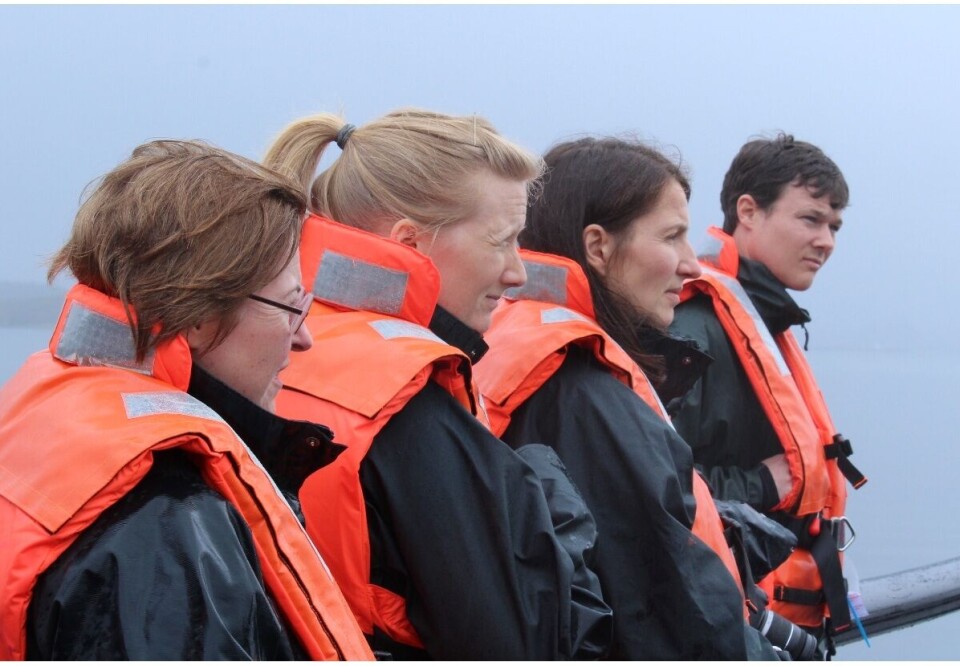
Summer interns offered insights into industry online
The Scottish Aquaculture Innovation Centre (SAIC) has taken on four new interns to work alongside its team this summer – but they are likely to be the first online cohort hired by the Stirling based centre.

The 10-week placements will provide a valuable insight into the aquaculture industry, but depending on the Covid situation, training and work may need to be completed at a distance using online technology, such as Slack, Zoom, and MS Teams, said SAIC on its website.
The four young people will learn about the use of technology and data, knowledge transfer, marketing and communications, among other things.
Lisa McLean, from Paisley, is studying for a BSc in Environmental Geography at the University of Stirling and said she first learned about aquaculture during her course.
‘Aquaculture is so important for Scotland and I admire the work that SAIC does in order to tackle industry challenges and promote good welfare for marine life,’ she said.
Sustainable future
‘As a geographer, I am very excited to be working for an industry that is aiming towards a more sustainable future, whilst researching into future threats that Scotland specifically faces.
‘I think food security is a very important global issue, requiring new ways of innovation and research, in order to secure a better future for everyone. I want to help promote this and make people more aware of the threats and challenges that aquaculture faces; allowing more people like myself to become part of the fight against climate change and food insecurity.’
Marnie Davidson, from Edinburgh, has just graduated from the University of Glasgow with a first-class degree in Marine and Freshwater Biology.
She wrote her final year dissertation on whether e-DNA metabarcoding could be used in aquaculture as an effective early warning for harmful organisms, and this inspired her to pursue a career in aquaculture.
Wild stocks
‘I hope that the industry will play a role in conserving and protecting the depleted wild stocks - replacing wild caught fish with farmed fish,’ she said.
‘I feel very lucky to have gained a place on the internship programme with SAIC. I believe that their visions of improving sustainability, fish welfare and reducing environmental impacts will massively benefit the industry and it is something I am very excited to get involved in.’
Lori Smith was born and raised in the Shetland Islands, where aquaculture is one of the core industries.
‘Being surrounded by aquaculture and knowing the value it holds in my local area, I have always been interested to learn more about it and figure out if it is something I could be part of,’ she said.
She applied for the SAIC internship after completing her third year at Robert Gordon University studying Forensic and Analytical Science.
‘This presented an opportunity to gain more knowledge about an industry that is so valuable and important to our local economy.
‘Our home in Shetland sits right next to the shore, where we can see several mussel and salmon farms, along with local creel boats.
Opportunity
‘While growing up, I passed the farms regularly when travelling out the voe on our family boat and I always thought it was really interesting. I think aquaculture is vital for our future and I am so excited to be given this opportunity with SAIC.’
Another University of Glasgow student, Jim Cameron, makes up the quartet. About to start the fourth year of a degree in Marine and Freshwater Biology, he said he has always been fascinated by Scotland’s outstanding natural environment.
‘I think the way in which aquaculture utilises these aspects and brings economic benefits to Scotland is amazing, whilst making efforts to be as environmentally sustainable as possible.
‘I was drawn to this internship opportunity as I am very passionate about raising awareness of this and promoting environmental sustainability in the Scottish industries.
‘Scottish aquaculture is a great outlet for these visions, and I am motivated to get actively involved to help make a difference.’























































